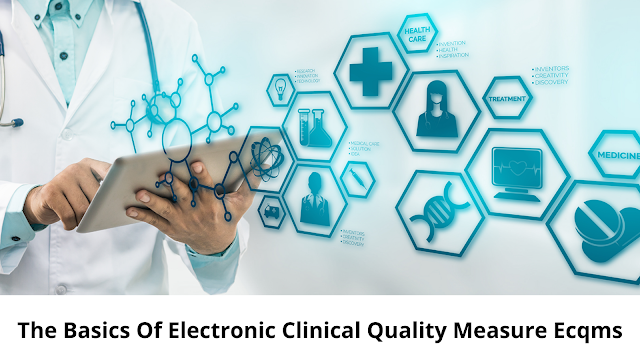Electronic Clinical Quality Measures (eCQMs) are technology-based indicators that play an essential role in the measuring and tracking of the quality of healthcare service provided by Eligible Professionals (EPs), Eligible Hospitals, and Critical Access Hospitals (CAHs). Centers for Medicare & Medicaid Services (CMS) use eCQMs in a range of quality reporting and value-based procurement initiatives.
The eCQMs are intended
to take advantage of structured encoded data derived from the provider's Electronic
Health Record (EHR). The eCQMs are updated annually to reflect changes in
clinical data, measure logic, and coding updates. The eCQMs save substantial
time by shifting from traditional charting interpretation to electronic Quality Reporting.
Measuring and
documenting eCQMs ensures that the healthcare system provides the
optimum, secure, cost-effective, patient-centered, transparent, accountable,
and responsive treatment. Multiple dimensions of patient care are measured by
eCQMs, such as:
- Patient and
Family Participation
- Patient Security
- Coordination of Care
- Public/Population Wellbeing
- Utilization of Healthcare
Resources in a More efficient Way
- Interventional
Process/Efficacy
How are eCQMs
determined?
The computable
descriptions of an eCQM specification include its aim, populations, logic, and
data components, as well as value set Identifiers. Electronic health record (EHR)
systems certified by the National Coordinator's Office for Patient Data
are utilized by health information technology to compute the outcomes for each
eCQM based on its deliverables.
ACOs Solutions
An Accountable Care
Organization (ACO) is a collection of clinicians, hospitals, and other
healthcare professionals that collaborate to offer coordinated, high-quality
care to patients. ACOs participating in the Medicare Shared Savings Program
(MSSP) must adopt the new reporting structure known as the APM Performance Pathway
(APP).
The CMS Web Interface
will no longer be supported after 2022. That implies that all ACOs must develop
a strategy for reporting APP quality measures using eCQMs to submit all-payer
information.
ACOs Solutions assist in monitoring patients' health records for a certain
period, assessing the effectiveness, and reporting data to CMS for evaluation.
These solutions offer interoperability, less development time, Audit-ability,
tracking, flexibility, and security.
EHR Solutions
From managing patient
flow to ePrescribing, healthcare professionals require efficient EHR Solutions
with flexible charting options. However, there are no perfect EHR Solutions
for merging data from various EHRs or related to eCQMs methodology. EHR
Solutions should offer users an automated alternative to provide
context-sensitive constructive criticism to enhance organizational performance
and reliability. EHR Solutions should support integrated healthcare across
clinical settings, export data, and effectively incorporate data from other
databases.




No comments:
Post a Comment
Please do not enter any spam link in the comment box